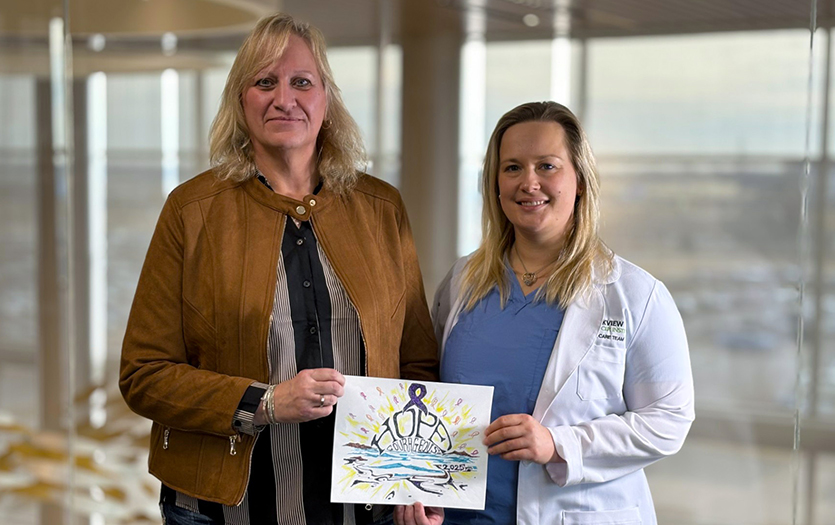The Parkview Breast Surgery team wants every woman to be self-aware and educated about her personal health. It was this objective that inspired The High Risk Program, an initiative designed for women who find themselves at a higher risk for developing breast cancer due to their family history or personal health factors. The program helps patients be proactive and address questions before they become issues. It’s our attempt at getting one step ahead of breast cancer.
To learn more, we sat down with Megan Hamilton, NP, with the PPG Breast Surgery team led by Medical Director Adeline Deladisma, M.D., for a Q&A session.
Q. What specific actions are taken once someone is identified as “high risk”?
A. A patient is referred to Parkview’s Breast Center via physician or self-referral. To be considered “high risk,” the patient could have one or more of the following concerns: An inherited gene mutation (BRCA1 or BRCA2), other syndrome, a personal or significant family history of premenopausal breast, ovarian or male breast cancer, a breast biopsy or surgery revealing lobular carcinoma in-situ (LCIS) or atypical hyperplasia (ADH, ALH) or any other high risk lesion.
Treatment at the Parkview Breast Center will include a risk assessment, clinical breast exam, screening tests (imaging), genetic counseling and testing when appropriate (per our genetic counselors who work closely with our office), education about your risk of developing breast cancer and potential implications for family members, personalized surveillance plans, prevention strategies and risk reduction strategies, if appropriate.
Q. How do you treat a patient’s well-being in its entirety?
A. Once the patient is placed into our care, Dr. Deladisma and/or I follow the NCCN (National Comprehensive Cancer Network) guidelines to provide evidence-based care. Parkview utilizes state-of-the-art breast cancer screening, including imaging with 3D mammography, ultrasound and MRI. We then work through intensive follow-up with surveillance exams and coordinated imaging, genetic counseling and testing per our genetic counselors, nutrition and lifestyle counselors to facilitate risk reduction.
Q. What special elements of treatment can be tied to this program?
A. As caregivers, we believe the open communication between the provider and the patient is key. We really want patients to be in an evidenced-based environment with a holistic touch. Having a dialogue about options for risk reduction, including surgery, chemoprevention (such as Tamoxifen) and lifestyle changes allows us to assess risk percentages based on a variety of risk models.
Q. At what age is a woman at the highest risk?
A. A patient’s risk of developing breast cancer may be higher than average if they carry a specific mutation in their genes or have personal or a family history. High-risk women benefit from screening and close monitoring to diagnose breast cancer early when it is more treatable (ACS). But overall, a patient’s risk of developing breast cancer increases as they get older. About 1 out of every 8 invasive breast cancer cases are found in women younger than 45, while about 2 out of 3 invasive breast cancers are found in women 55 or older.
Q. How is this treatment different from other healthcare providers?
A. Parkview’s Breast Center combines the latest medical and scientific knowledge with the most advanced surveillance and diagnostic methods. We take into consideration the medical and family history and use risk models to help guide each patient through the decision-making process regarding appropriate care. We also orchestrate an open dialogue around all possible options for risk reduction at the patient’s initial and follow-up visits.
Q. What is the ultimate goal when treating patients through this program?
A. Parkview’s Breast Center aims to provide holistic multidisciplinary care to the high risk population. We understand that prevention is key, and our mission is to save lives through education, prevention, early detection, risk reduction and healthy lifestyle choices.
Talk with one of our providers to find out if you are at higher risk for breast cancer. (260) 266-8900



